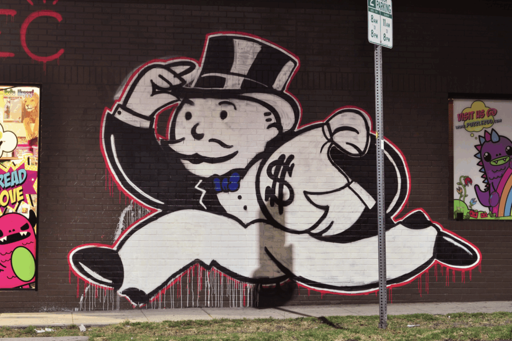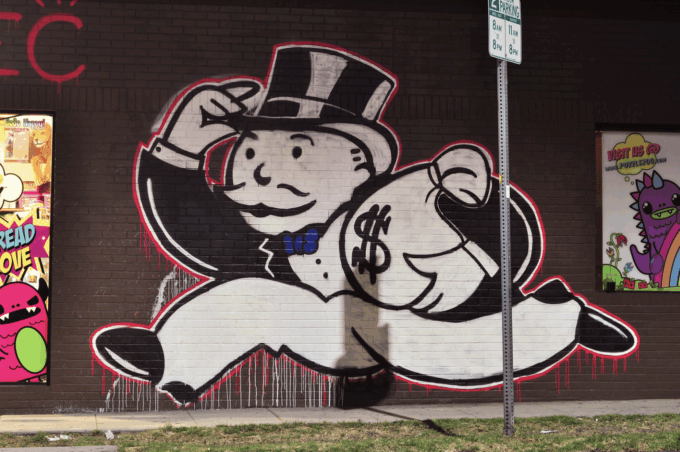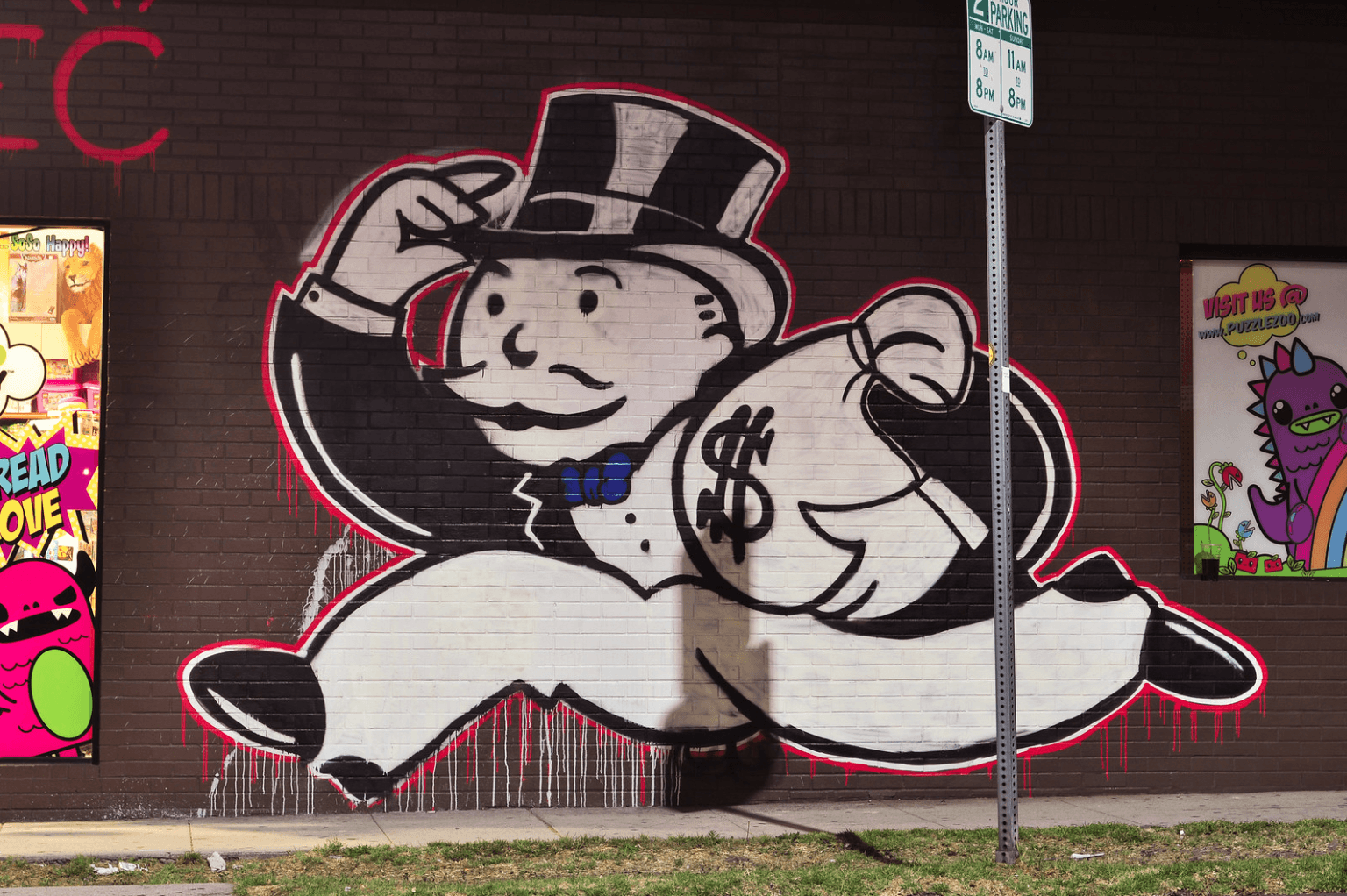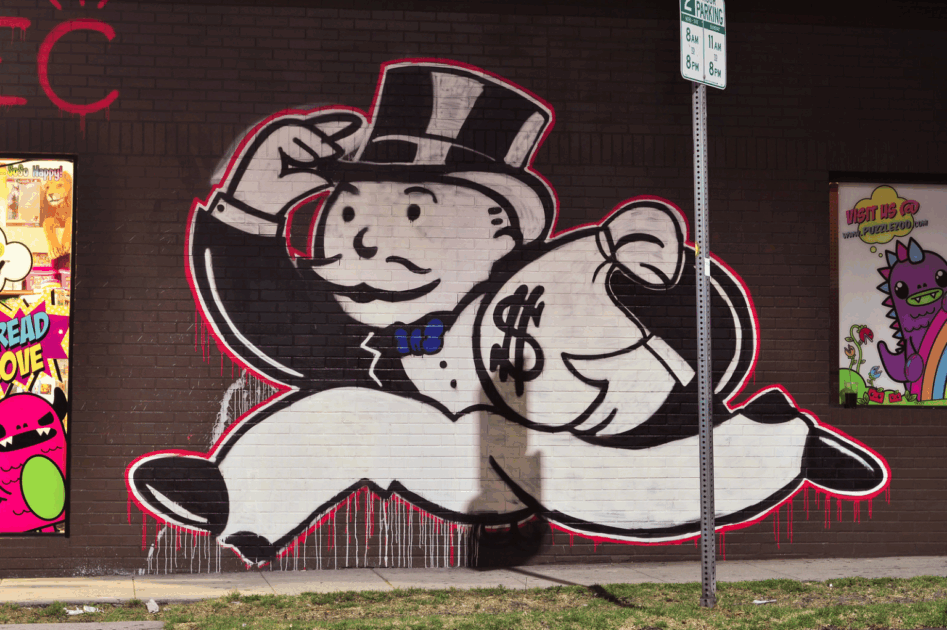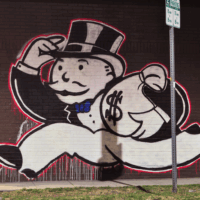Photograph Source: aisletwentytwo – CC BY 2.0
There is a huge amount of silliness around the dollar’s status as the world’s leading reserve currency. “Leading” is the key word in that sentence. There are several currencies that countries treat as a reserve currency: the euro, the British Pound, the Japanese yen, the Chinese Renminbi, and even the Swiss frac. The dollar is by far the most widely used reserve currency, but these other currencies also fill this role, even if they are less important.
I have harped on this point before, but my immediate reason for raising it was a Substack column by the usually astute Adam Tooze. In the piece, Tooze dismisses the idea that there will be large-scale flight from US debt, noting that US government debt comprises a huge share of sovereign debt across the globe and an even larger share of rich country debt.
He points to a graph showing the disproportionate share of US government debt in world debt and then asks:
“You can say that undermining the Fed’s independence, risks undermining the position of the US at the heart of the global currency system. That may well be true. But where exactly are major investors to go? …
“If you want to invest trillions, your options, other than the US, are China or Japan, or a smattering of smaller European borrowers. It isn’t by accident that the Euro is riding high right now. But the Euro is far from being in a position to replace the mighty US Treasury market.”
This comment about “wanting to invest trillions” fundamentally misrepresents what is going on in these financial markets. No one is literally investing trillions. The bulk of this debt is held by rich individuals, corporations, banks, and other financial institutions investing millions, billions, tens of billions, or in some cases hundreds of billions. Almost no one is asking where to park multiple trillions of dollars.
This point is fundamental, because any individual actor can certainly decide to reduce their holdings of dollar debt by 30, 40, 50 percent or more. The market will readily accommodate a decision to switch $30 billion, or even $300 billion from US government debt to some combination of Japanese, French, and Italian debt.
Furthermore, there is no law that requires investors to keep their holdings of government debt constant. They could switch their assets, or some portion of their assets, to the debt of private companies, or they could buy equities. The idea that the relative importance of dollar denominated debt in world credit markets somehow obligates investors to hold it is silly on its face.
To be clear, a mass selloff of US government debt will not be done lightly. As we’ve seen, investors are willing to tolerate a great deal of Trump craziness with only a limited impact on the dollar and interest rates. But “limited” does not mean zero.
The dollar has fallen by more than 10 percent against the euro since Trump took office. This is despite the economics textbook prediction that tariffs should increase the value of the dollar. Also, the spread between the interest rate on 30-year Treasury bonds and 10-year Treasury bonds has increased from around 20 basis points last year to more than 60 basis points at present. That additional 40 basis points, which directly affects mortgage interest rates, can be seen as the Trump crazy premium to date.
As the craziness deepens — for example, if Trump puts himself in charge of the statistical agencies or decides to do a few more Intel shakedowns — the Trump crazy premium will rise. This doesn’t necessarily mean a collapse of the dollar or the value of government debt, but it is likely to mean the country will be seeing much higher interest rates than if we had a sane person in the White House.
Tooze is right that it is more than a bit pathetic that we are looking to financial markets to save US democracy. It would be great if we had an opposition party with a clear message that appealed to the bulk of the population. But we don’t.
The Democratic Party came to be dominated by many of the same moneyed interests that control the Republican Party. And with the decline of organized labor, winning elections came to be ever more about campaign dollars.
Many of us had hopes for a revitalized labor movement, but as businesses put up bigger obstacles to organizing, and the Democrats proved unable to change labor laws even when they controlled majorities in Congress, it became clear this was not going to happen. Progressives could have looked to build alternative sources of power, such as a media structure supported through individual tax credits, but that would have required some new thinking. And, as the saying goes, if you’ve been losing for 50 years, why change now?
The result is a Democratic Party that is dependent on raising money from rich people, who may be opposed to fascism, but also don’t want to see their taxes raised. That sharply limits the party’s ability to promote an unambiguously progressive platform that includes items like universal Medicare, a financial transaction tax to eliminate bloat and inefficiency in the financial sector, and a substantially higher minimum wage. So now financial panic may be our best bet to save democracy.
This first appeared on Dean Baker’s Beat the Press blog.
The post Being a Reserve Currency is Not a Zero-One Proposition appeared first on CounterPunch.org.
From CounterPunch.org via this RSS feed


